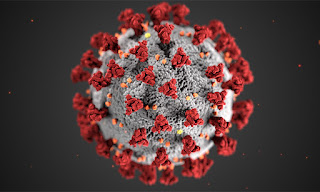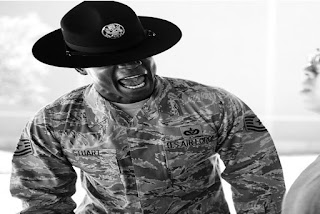It has
now been a couple months of “Pandemic mode,” where we’ve been forced to be home
more than usual, and also disconnected from others more than usual. I wonder if
this has been challenging for you in some ways, and if it has also been good in
some ways. Are your relationships experiencing new tensions or breakthroughs?
Clearly, many in our society are at their wits end... from armed protests to conspiracy theories exploding everywhere--the patience of many has run out. Talk of "reopening" is yet another occasion people are finding to duke it out over social media.
For me,
I have enjoyed being able to see my wife and kids much more than usual. Working
from home allows me to observe their days as they play, work on emailed
assignments from school, etc. It also creates some challenges to staying
focused on work as I get interrupted far more than usual. “Dad, can you play
with me? Dad, I need to go potty! Dad, get the spider!”
My wife
and I generally get along great. Of course, we naturally have the occasional kerfuffle which may start an argument. In the
past two months, however, we have probably argued more than we ever have in our
marriage of almost 18 years. The combined stress of having the kids home all
day, trying to create reasonable routines for schoolwork, having very limited
options for getting out or socializing, and trying to telework with
distractions galore, has created many occasions for fighting.
Don't worry, we're doing fine--just learning a lot of new rhythm together. It’s forcing us to learn patience, adaptation, communication, and collective
problem solving on a deeper level. I’ve had to remember to assume the best in
my wife and kids when I can’t seem to find the normal quiet working environment
that I would normally have at my work office. I have to remember that this is a
major adjustment for them, too, and not just for me.
1
Corinthians 13:5 tells us that love “keeps no record of wrongs.” Another
rendering of this phrase is that love “does not impute wrong motives,” which
means that love does not project a negative motive onto someone else. In other
words, love always assumes the best, gives the best benefit of the doubt rather
than assuming the worst.
Man,
does that ever feel important right now... When I get hyper-focused on the work I
need to get done, anyone who disrupts me basically becomes the devil incarnate
in my mind. It’s rather silly, but for a man who has a hard time getting back
into the “zone” of concentrating and getting things done, interruptions feel
like pure evil. That does not give me the right to take it out on my wife and
kids, though. I’ve done a lot of repenting lately just on this one thing.
You’ll never regret taking a 5 minute break to hug, love, and affirm your
child, or a 15 minute break to play with them. Those memories will stick in
their little brains forever, helping develop them into the adult they will become
and the kind of parent they will become. Plus, it forms the picture of God they
believe in.
All that
to say, if you are struggling with working from home, adjusting to the current
realities, dealing with new stresses, experiencing new relationship
tensions—you are not alone. See it as a growth opportunity. It will be okay,
and this too, shall pass.





